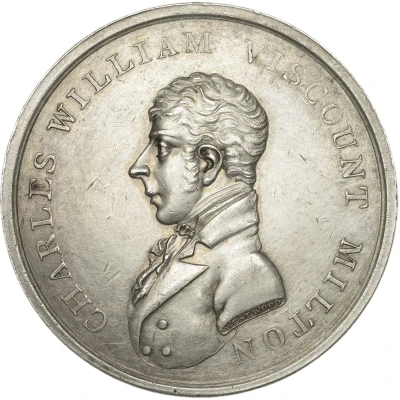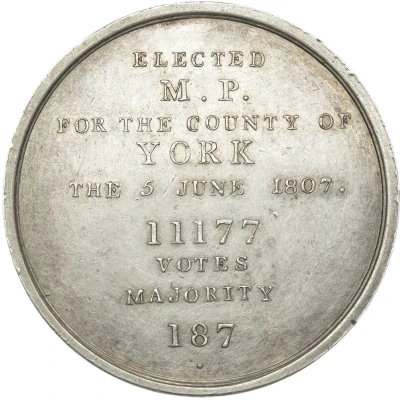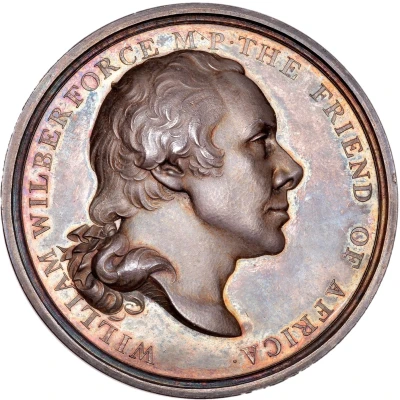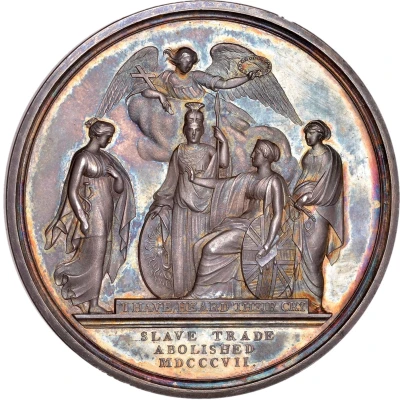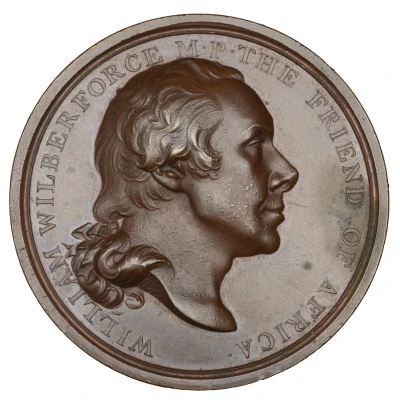
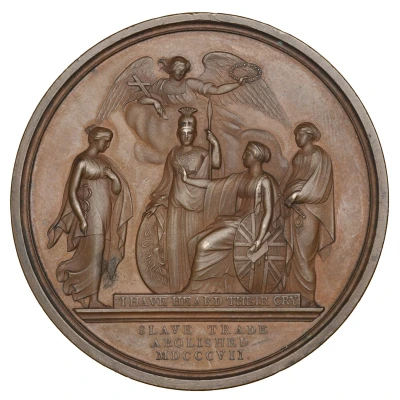

© NOONANS
Medal - William Wilberforce
1807 year| Bronze | - | 53 mm |
| Location | United Kingdom (United Kingdom, British Overseas Territories and Crown Dependencies) |
|---|---|
| King | George III (1760-1820) |
| Type | Commemorative medals › Personality medals |
| Year | 1807 |
| Composition | Bronze |
| Diameter | 53 mm |
| Shape | Round |
| Technique | Milled |
| Demonetized | Yes |
| Updated | 2024-11-14 |
| Numista | N#118593 |
|---|---|
| Rarity index | 100% |
Reverse
Seated Britannia raises her arm to halt the slave trade. An angel is above with cross and garland, ready to honor Britannia. Mercury, Prudence and Justice accompany Britannia on the dais.
Script: Latin
Lettering: I HAVE HEARD THEIR CRY
Comment
William Wilberforce (24 August 1759 – 29 July 1833) was an English politician, philanthropist, and a leader of the movement to stop the slave trade. A native of Kingston upon Hull, Yorkshire, he began his political career in 1780, eventually becoming an independent Member of Parliament (MP) for Yorkshire (1784–1812). In 1785, he became an Anglican Christian, which resulted in major changes to his lifestyle and a lifelong concern for reform.In 1787, he came into contact with Thomas Clarkson and a group of anti-slave-trade activists, including Granville Sharp, Hannah More and Charles Middleton. They persuaded Wilberforce to take on the cause of abolition, and he soon became one of the leading English abolitionists. He headed the parliamentary campaign against the British slave trade for twenty years until the passage of the Slave Trade Act of 1807.
Wilberforce was convinced of the importance of religion, morality and education. He championed causes and campaigns such as the Society for the Suppression of Vice, British missionary work in India, the creation of a free colony in Sierra Leone, the foundation of the Church Mission Society, and the Society for the Prevention of Cruelty to Animals. His underlying conservatism led him to support politically and socially controversial legislation, and resulted in criticism that he was ignoring injustices at home while campaigning for the enslaved abroad.
In later years, Wilberforce supported the campaign for the complete abolition of slavery, and continued his involvement after 1826, when he resigned from Parliament because of his failing health. That campaign led to the Slavery Abolition Act 1833, which abolished slavery in most of the British Empire; Wilberforce died just three days after hearing that the passage of the Act through Parliament was assured. He was buried in Westminster Abbey, close to his friend William Pitt.
